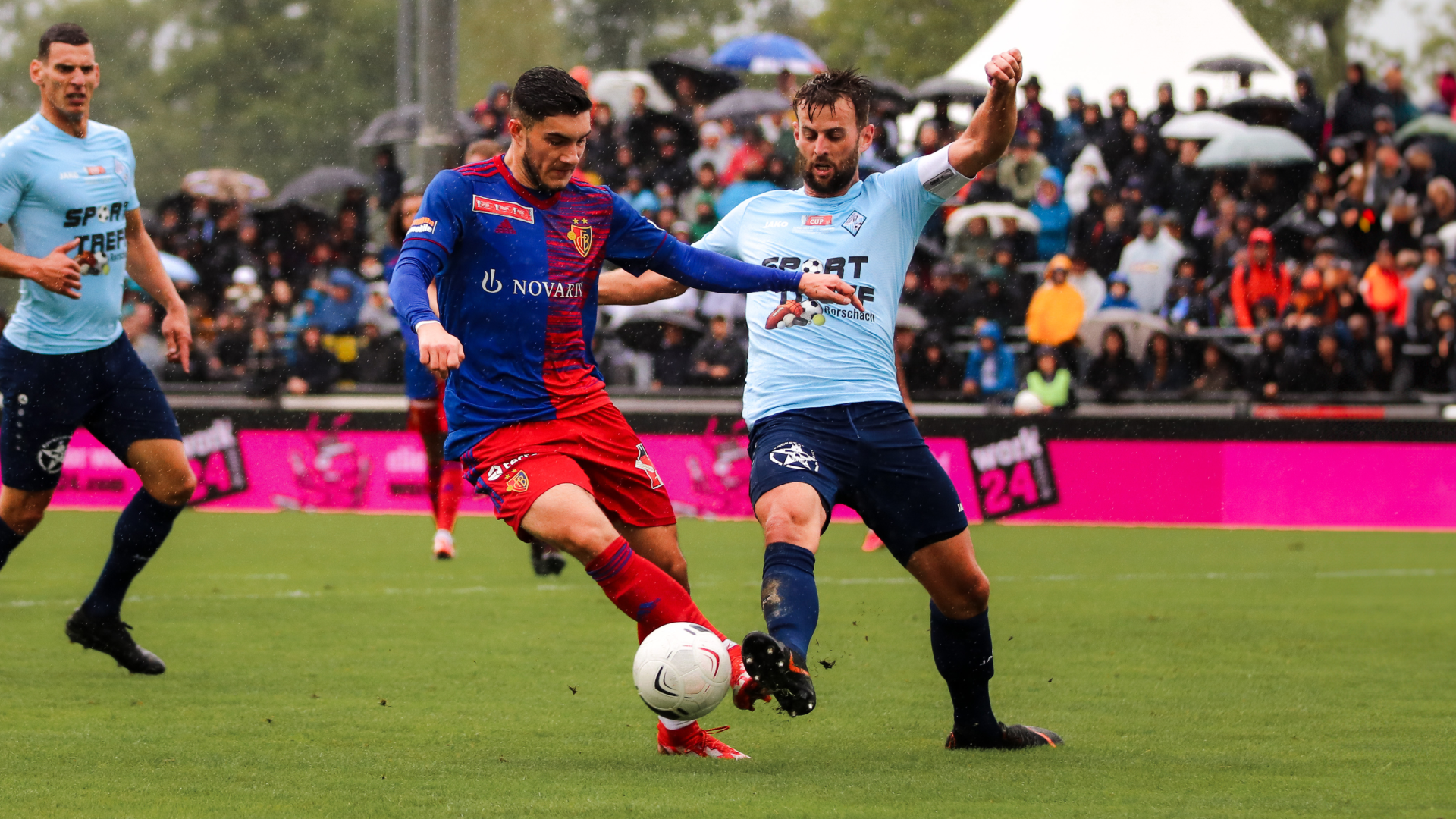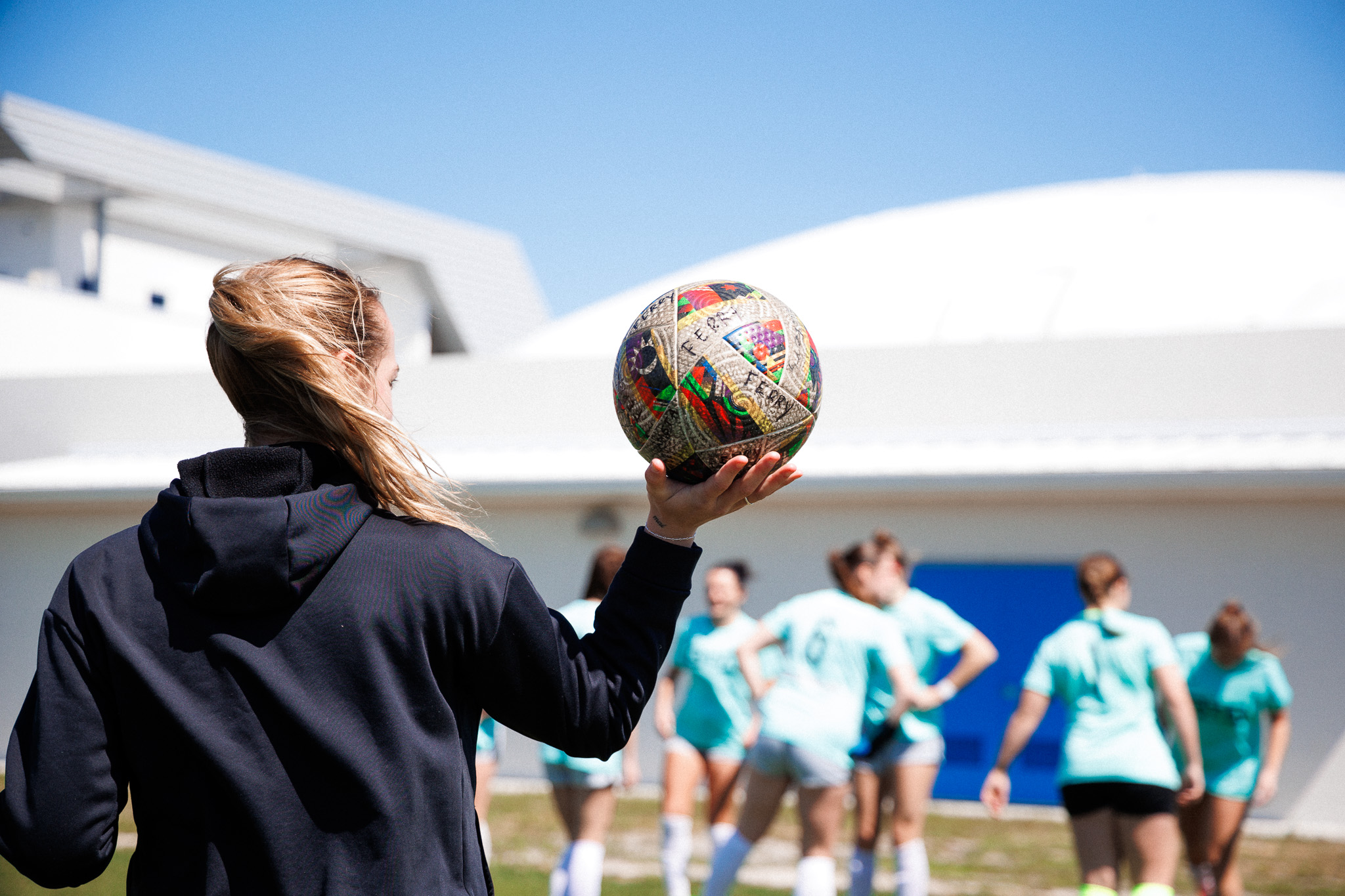Building the pyramid the right way up
Rosie Crampin
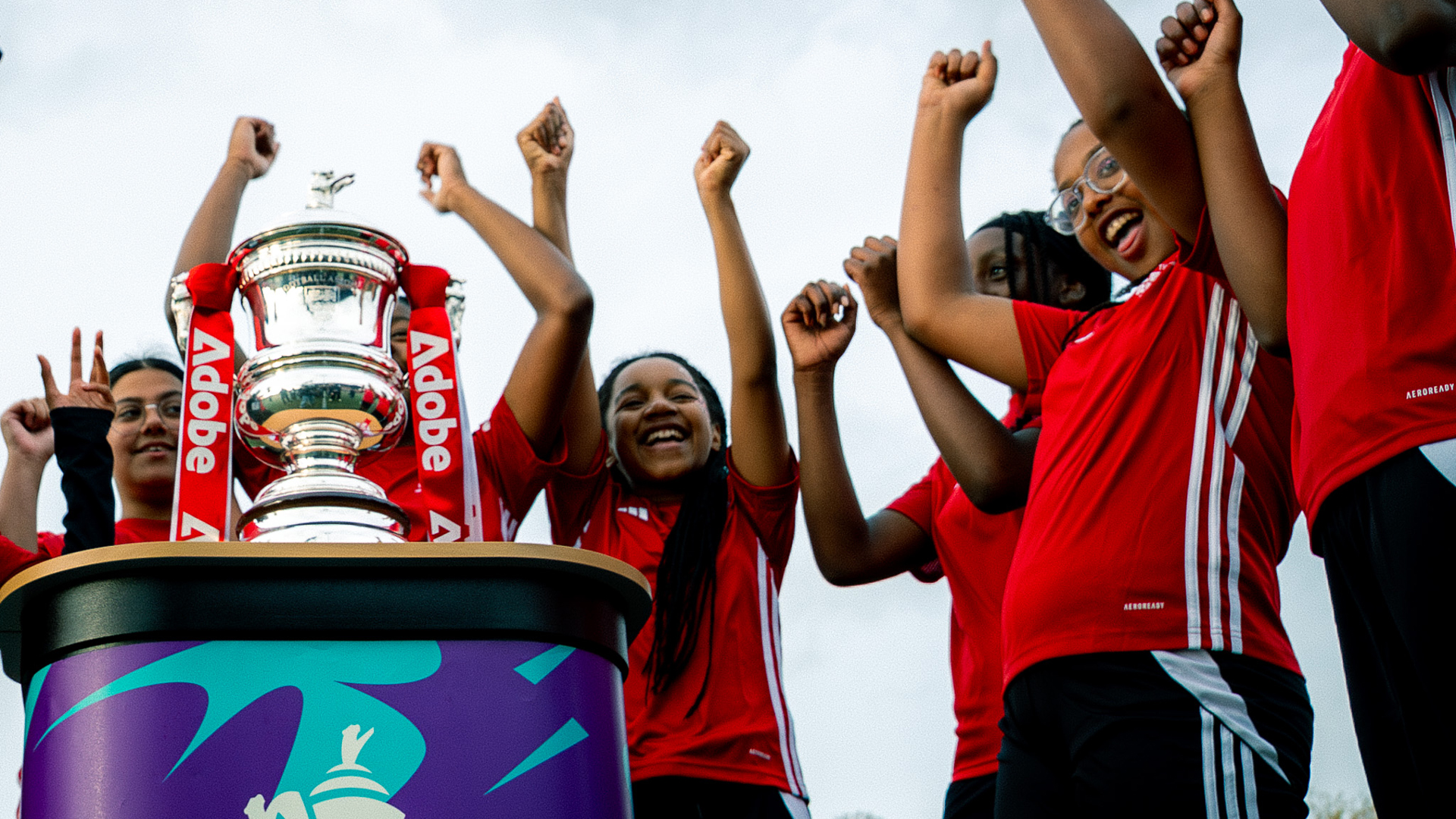
The inaugural Alessia Cup brought together 180 girls from marginalized communities for a day of football. But the real goal is fixing a system that's leaving a generation behind.
On a November afternoon in north London, 180 girls aged 12 to 14 stepped onto the pitch for the inaugural Alessia Cup. The name was new, but the concept wasn't. Goals 4 Girls had been running the UK's first-ever football wellbeing tournaments for years. This time, a collaboration with Sky UK and The Alessia Russo Foundation gave the model a much larger platform.
But this tournament carried weight beyond the scoreline. Behind the scenes, a partnership between Sky UK, The Alessia Russo Foundation, and Goals 4 Girls had created something different: a day combining competitive football with wellbeing workshops, dance sessions, and confidence-building activities.
The stakes were higher than a typical youth tournament. The girls all came from marginalized communities across north and east London, participating at an age when dropout rates for female athletes spike dramatically. The day was designed to counter a troubling trend.
The numbers behind the gap
The collaboration came together through Goals 4 Girls' involvement in Sky's Game Changing report, which documented the barriers facing young female athletes. The findings were stark: 280 million hours missed annually in the participation gap between boys and girls playing sport. But also this: 97% of girls who play football or sport go on to executive positions.
"It really does shine a light on what these girls need access to, and why it's so important for organisations to be given a tax relief or for certain organisations to use their CSR money appropriately to be able to give back to our upcoming generation, our future generation," says Francesca Brown, founder of Goals 4 Girls.

Brown founded the charity in 2011 after her career as a semi-professional player with Manchester City. The London-based organization works with girls and young women aged seven and up, combining football with personal development and mental health support.
The numbers from Goals 4 Girls' own work tell part of the story. 90% of participants report significant improvements in confidence, resilience, and friendship-making abilities. 52% of girls who suffer from depression experience fewer symptoms. 94% of those at risk of exclusion at the start of the academic year complete the entire year in school.
One participant captured what football meant to her: "Football allowed me to talk to people and get my emotions out in a positive way. In a lot of ways, football saved me."
Creating a space to belong
Brown describes what she wanted girls to take away from the day, both on and off the pitch. "Every young girl who stepped foot into the Goals 4 Girls and Alessia Cup environment today has really benefited from not only the wellbeing workshops and the activation tents, but meeting new friends, finding their purpose, and finding where they belong."
The language of belonging runs through her explanation. "There's been so many cases in life where young girls are shut out and they're being told that they don't belong in certain spaces," she says. "For us, it's making sure that this space here has made them feel that they have a sense of belonging, their voices are heard, and that they matter and they count."
The day included wellbeing workshops, dance sessions, confidence-building activities, and the football itself. Brown calls it "almost like a one-stop shop to all the work that we do on our programmes."
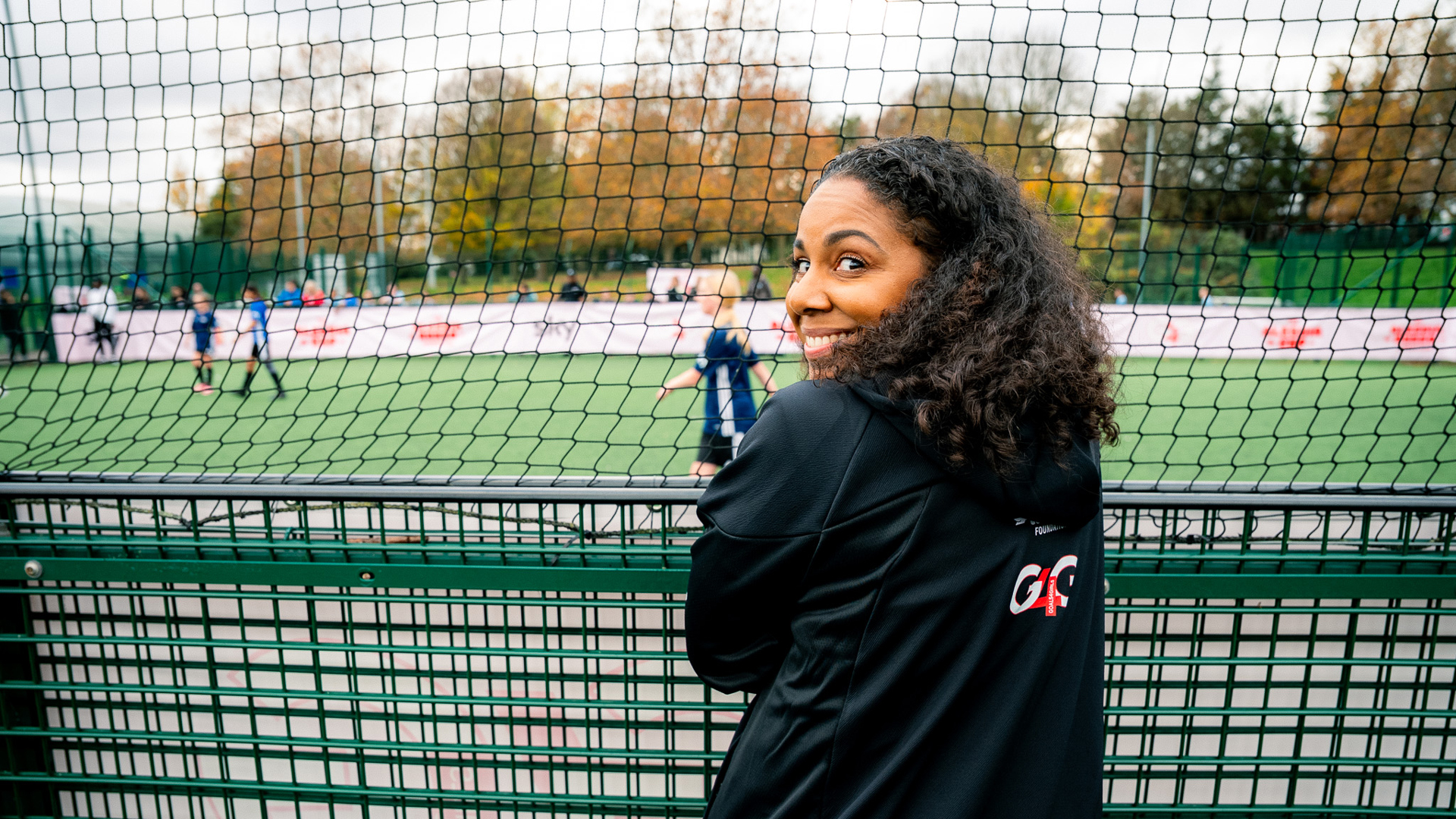
Every match was also filmed with Veo, giving all 180 participants the chance to watch their performances afterward. For Brown, this added something important. "It gives them that proper stadium feel, that they're actually being recorded," she says. "They really can look back on their performance as a team, their celebrations when they score goals."
The video access extended beyond the pitch. Parents who couldn't attend could watch their daughters play. "They're still being supported, they're still being cheered from home, the sidelines and beyond," Brown says. "And that is what we're trying to create here."
Alessia's Russo’s role
The Alessia Russo Foundation launched in October 2025 with a focus on creating opportunities for girls and young women to play sport. Russo, Arsenal and England forward and the 2024-25 Women's Footballer of the Year, has built her foundation around tackling low confidence, poor body image, limited representation, and lack of role models.
Her connection to the cup is personal. "One of her best memories as a young child, when she was younger than some of these girls, was a tournament just like this where she was able to participate," Brown says. "It might have been that trajectory which allowed her to go on to that experience, might have enabled her to continue on the path to where she is today."
Through her foundation, Russo wants to ensure she can continue to have a heightened impact like the cup represents. The foundation works with charity partners like Goals 4 Girls to reach young girls within their communities.
The investment problem
The success of the Lionesses has raised the profile of women's football in recent years. But Brown sees a problem with how the growth is being managed.
"I think the Lionesses' success has really shone a light on the opportunities that can be created for girls, young girls, across the UK and beyond," she says. "But I do think that with media and marketing and where the cash investment is going from brands, it needs to be looked at more from a grassroots perspective, because we're building the pyramid probably the wrong way round, and we're leaving a whole generation of girls behind."
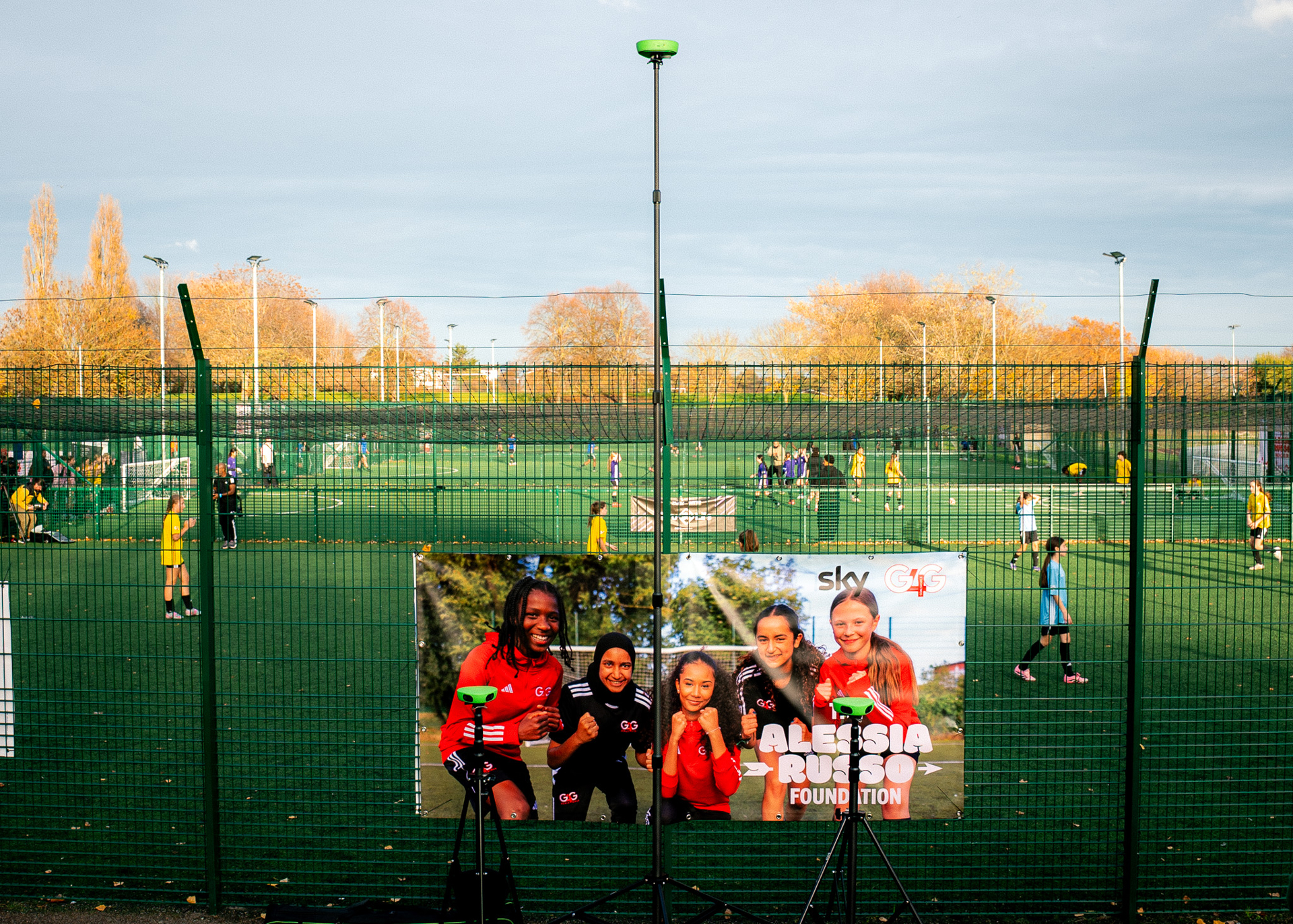
She's direct about the consequences. "Girls who are in marginalized communities, who can't access these opportunities or don't have the access to these opportunities, are slowly being left behind. And the gap is just growing and growing and growing."
The solution, according to Brown, is creating sustainable pathways within these communities. "How do we create sustainable pathways to allow them to feel supported, so that they can also see themselves as a future Lioness?"
What comes next
The Alessia Cup already has a waiting list of hundreds of girls, not just in London but across the country. Brown sees the concept expanding. "We'll see it international within five years," she says. Multiple people have asked about bringing the cup abroad.
For a charity operating in a sector where only 2% of funding goes to women and girls organizations, the challenge is scaling impact. "How do we enable ourselves to engage a lot more young women and girls?" Brown asks. "How can we take this concept now and make it nationwide?"
The inaugural tournament established a template: competitive football combined with wellbeing support, all designed to create what Brown calls "transformative experiences so that these girls can dream beyond."
The question she keeps returning to is about sustainable pathways. Girls in marginalized communities who can't access opportunities are being left behind. And the gap keeps growing.
But on this November afternoon in north London, 180 girls had access. They played, they learned, they belonged. And they could see themselves as future Lionesses.


